#government regulation. . .
Explore tagged Tumblr posts
Text
Expert agencies and elected legislatures

If you'd like an essay-formatted version of this post to read or share, here's a link to it on pluralistic.net, my surveillance-free, ad-free, tracker-free blog:
https://pluralistic.net/2024/11/21/policy-based-evidence/#decisions-decisions

Since Trump hijacked the Supreme Court, his backers have achieved many of their policy priorities: legalizing bribery, formalizing forced birth, and – with the Loper Bright case, neutering the expert agencies that regulate business:
https://jacobin.com/2024/07/scotus-decisions-chevron-immunity-loper
What the Supreme Court began, Elon Musk and Vivek Ramaswamy are now poised to finish, through the "Department of Government Efficiency," a fake agency whose acronym ("DOGE") continues Musk's long-running cryptocurrency memecoin pump-and-dump. The new department is absurd – imagine a department devoted to "efficiency" with two co-equal leaders who are both famously incapable of getting along with anyone – but that doesn't make it any less dangerous.
Expert agencies are often all that stands between us and extreme misadventure, even death. The modern world is full of modern questions, the kinds of questions that require a high degree of expert knowledge to answer, but also the kinds of questions whose answers you'd better get right.
You're not stupid, nor are you foolish. You could go and learn everything you need to know to evaluate the firmware on your antilock brakes and decide whether to trust them. You could figure out how to assess the Common Core curriculum for pedagogical soundness. You could learn the material science needed to evaluate the soundness of the joists that hold the roof up over your head. You could acquire the biology and chemistry chops to decide whether you want to trust produce that's been treated with Monsanto's Roundup pesticides. You could do the same for cell biology, virology, and epidemiology and decide whether to wear a mask and/or get an MRNA vaccine and/or buy a HEPA filter.
You could do any of these. You might even be able to do two or three of them. But you can't do all of them, and that list is just a small slice of all the highly technical questions that stand between you and misery or an early grave. Practically speaking, you aren't going to develop your own robust meatpacking hygiene standards, nor your own water treatment program, nor your own Boeing 737 MAX inspection protocol.
Markets don't solve this either. If they did, we wouldn't have to worry about chunks of Boeing jets falling on our heads. The reason we have agencies like the FDA (and enabling legislation like the Pure Food and Drug Act) is that markets failed to keep people from being murdered by profit-seeking snake-oil salesmen and radium suppository peddlers.
These vital questions need to be answered by experts, but that's easier said than done. After all, experts disagree about this stuff. Shortcuts for evaluating these disagreements ("distrust any expert whose employer has a stake in a technical question") are crude and often lead you astray. If you dismiss any expert employed by a firm that wants to bring a new product to market, you will lose out on the expertise of people who are so legitimately excited about the potential improvements of an idea that they quit their jobs and go to work for whomever has the best chance of realizing a product based on it. Sure, that doctor who works for a company with a new cancer cure might just be shilling for a big bonus – but maybe they joined the company because they have an informed, truthful belief that the new drug might really cure cancer.
What's more, the scientific method itself speaks against the idea of there being one, permanent answer to any big question. The method is designed as a process of continual refinement, where new evidence is continuously brought forward and evaluated, and where cherished ideas that are invalidated by new evidence are discarded and replaced with new ideas.
So how are we to survive and thrive in a world of questions we ourselves can't answer, that experts disagree about, and whose answers are only ever provisional?
The scientific method has an answer for this, too: refereed, adversarial peer review. The editors of major journals act as umpires in disputes among experts, exercising their editorial discernment to decide which questions are sufficiently in flux as to warrant taking up, then asking parties who disagree with a novel idea to do their damndest to punch holes in it. This process is by no means perfect, but, like democracy, it's the worst form of knowledge creation except for all others which have been tried.
Expert regulators bring this method to governance. They seek comment on technical matters of public concern, propose regulations based on them, invite all parties to comment on these regulations, weigh the evidence, and then pass a rule. This doesn't always get it right, but when it does work, your medicine doesn't poison you, the bridge doesn't collapse as you drive over it, and your airplane doesn't fall out of the sky.
Expert regulators work with legislators to provide an empirical basis for turning political choices into empirically grounded policies. Think of all the times you've heard about how the gerontocracy that dominates the House and the Senate is incapable of making good internet policy because "they're out of touch and don't understand technology." Even if this is true (and sometimes it is, as when Sen Ted Stevens ranted about the internet being "a series of tubes," not "a dump truck"), that doesn't mean that Congress can't make good internet policy.
After all, most Americans can safely drink their tap water, a novelty in human civilization, whose history amounts to short periods of thriving shattered at regular intervals by water-borne plagues. The fact that most of us can safely drink our water, but people who live in Flint (or remote indigenous reservations, or Louisiana's Cancer Alley) can't tells you that these neighbors of ours are being deliberately poisoned, as we know precisely how not to poison them.
How did we (most of us) get to the point where we can drink the water without shitting our guts out? It wasn't because we elected a bunch of water scientists! I don't know the precise number of microbiologists and water experts who've been elected to either house, but it's very small, and their contribution to good sanitation policy is negligible.
We got there by delegating these decisions to expert agencies. Congress formulates a political policy ("make the water safe") and the expert agency turns that policy into a technical program of regulation and enforcement, and your children live to drink another glass of water tomorrow.
Musk and Ramaswamy have set out to destroy this process. In their Wall Street Journal editorial, they explain that expert regulation is "undemocratic" because experts aren't elected:
https://www.wsj.com/opinion/musk-and-ramaswamy-the-doge-plan-to-reform-government-supreme-court-guidance-end-executive-power-grab-fa51c020
They've vowed to remove "thousands" of regulations, and to fire swathes of federal employees who are in charge of enforcing whatever remains:
https://www.theverge.com/2024/11/20/24301975/elon-musk-vivek-ramaswamy-doge-plan
And all this is meant to take place on an accelerated timeline, between now and July 4, 2026 – a timeline that precludes any meaningful assessment of the likely consequences of abolishing the regulations they'll get rid of.
"Chesterton's Fence" – a thought experiment from the novelist GK Chesterton – is instructive here:
There exists in such a case a certain institution or law; let us say, for the sake of simplicity, a fence or gate erected across a road. The more modern type of reformer goes gaily up to it and says, "I don't see the use of this; let us clear it away." To which the more intelligent type of reformer will do well to answer: "If you don't see the use of it, I certainly won't let you clear it away. Go away and think. Then, when you can come back and tell me that you do see the use of it, I may allow you to destroy it.
A regulation that works might well produce no visible sign that it's working. If your water purification system works, everything is fine. It's only when you get rid of the sanitation system that you discover why it was there in the first place, a realization that might well arrive as you expire in a slick of watery stool with a rectum so prolapsed the survivors can use it as a handle when they drag your corpse to the mass burial pits.
When Musk and Ramaswamy decry the influence of "unelected bureaucrats" on your life as "undemocratic," they sound reasonable. If unelected bureaucrats were permitted to set policy without democratic instruction or oversight, that would be autocracy.
Indeed, it would resemble life on the Tesla factory floor: that most autocratic of institutions, where you are at the mercy of the unelected and unqualified CEO of Tesla, who holds the purely ceremonial title of "Chief Engineer" and who paid the company's true founders to falsely describe him as its founder.
But that's not how it works! At its best, expert regulations turns political choices in to policy that reflects the will of democratically accountable, elected representatives. Sometimes this fails, and when it does, the answer is to fix the system – not abolish it.
I have a favorite example of this politics/empiricism fusion. It comes from the UK, where, in 2008, the eminent psychopharmacologist David Nutt was appointed as the "drug czar" to the government. Parliament had determined to overhaul its system of drug classification, and they wanted expert advice:
https://locusmag.com/2021/05/cory-doctorow-qualia/
To provide this advice, Nutt convened a panel of drug experts from different disciplines and asked them to rate each drug in question on how dangerous it was for its user; for its user's family; and for broader society. These rankings were averaged, and then a statistical model was used to determine which drugs were always very dangerous, no matter which group's safety you prioritized, and which drugs were never very dangerous, no matter which group you prioritized.
Empirically, the "always dangerous" drugs should be in the most restricted category. The "never very dangerous" drugs should be at the other end of the scale. Parliament had asked how to rank drugs by their danger, and for these categories, there were clear, factual answers to Parliament's question.
But there were many drugs that didn't always belong in either category: drugs whose danger score changed dramatically based on whether you were more concerned about individual harms, familial harms, or societal harms. This prioritization has no empirical basis: it's a purely political question.
So Nutt and his panel said to Parliament, "Tell us which of these priorities matter the most to you, and we will tell you where these changeable drugs belong in your schedule of restricted substances." In other words, politicians make political determinations, and then experts turn those choices into empirically supported policies.
This is how policy by "unelected bureaucrats" can still be "democratic."
But the Nutt story doesn't end there. Nutt butted heads with politicians, who kept insisting that he retract factual, evidence-supported statements (like "alcohol is more harmful than cannabis"). Nutt refused to do so. It wasn't that he was telling politicians which decisions to make, but he took it as his duty to point out when those decisions did not reflect the policies they were said to be in support of. Eventually, Nutt was fired for his commitment to empirical truth. The UK press dubbed this "The Nutt Sack Affair" and you can read all about it in Nutt's superb book Drugs Without the Hot Air, an indispensable primer on the drug war and its many harms:
https://www.bloomsbury.com/us/drugs-without-the-hot-air-9780857844989/
Congress can't make these decisions. We don't elect enough water experts, virologists, geologists, oncology researchers, structural engineers, aerospace safety experts, pedagogists, gerontoloists, physicists and other experts for Congress to turn its political choices into policy. Mostly, we elect lawyers. Lawyers can do many things, but if you ask a lawyer to tell you how to make your drinking water safe, you will likely die a horrible death.
That's the point. The idea that we should just trust the market to figure this out, or that all regulation should be expressly written into law, is just a way of saying, "you will likely die a horrible death."
Trump – and his hatchet men Musk and Ramaswamy – are not setting out to create evidence-based policy. They are pursuing policy-based evidence, firing everyone capable of telling them how to turn the values espouse (prosperity and safety for all Americans) into policy.
They dress this up in the language of democracy, but the destruction of the expert agencies that turn the political will of our representatives into our daily lives is anything but democratic. It's a prelude to transforming the nation into a land of epistemological chaos, where you never know what's coming out of your faucet.
#pluralistic#politics#political science#department of government efficiency#loper bright#chevron deference#david nutt#drugs#regulation#democracy#democratic accountability#ukpoli#nutt sack affair#war on drugs#war on some drugs
449 notes
·
View notes
Note
There needs to be some sorta part 2 to player reader! Imagine her life is just getting kidnapped by another suitor every other day or somethin. Or gettin forcibly married to one with a legion of other monsters interrupting the weddin. Girl is livin my dream of bein desired by monsters! 😩😢
See, that’s the trouble, I feel like everything else from now on should be up to imagination. Will Reader be serially kidnapped? Serially married? Will the mayor of Monstertown have to intervene and turn Reader into some sort of publicly owned existence that can be borrowed within a strict interval like a library book, in order to avoid the monsters killing each other?
“I’m here to return Reader”, the Eldritch creature says, pushing the little card onto the counter with its tentacle appendage.
“Uh huh. That’s one week past deadline, so I’m afraid you’ll have to pay a fine.” The worker responds, checking the files.
“Of course.”
“Is Reader alright?” The employee questions upon noticing the feverish state of the human. “It looks a little worn out.”
“Yeah, sorry about that. Might’ve gotten too enthusiastic.”
“Happens, happens. I’ll let you know when it’s available again.”
Also, as a little side note, this was the initial idea I had for a header picture but I can’t be bothered to do anything beyond this doodle. Found it funny so I thought I’d share. :)

#yandere monsters#reader insert#does that make reader a hoe in accordance to government regulations?#monster boyfriend#monster x reader#doodle
2K notes
·
View notes
Text

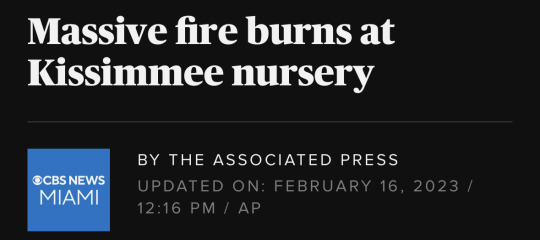
Source
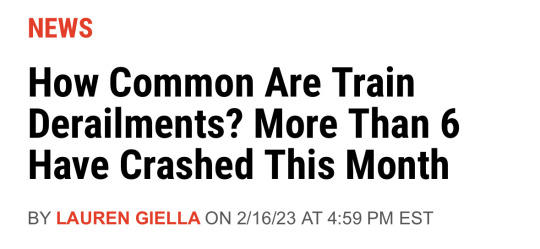
Source
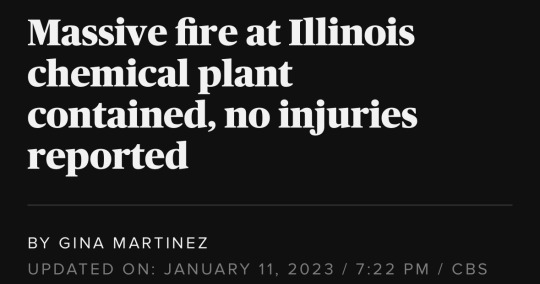
Source
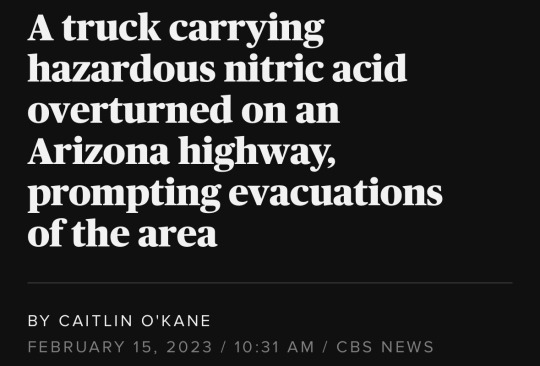
Source
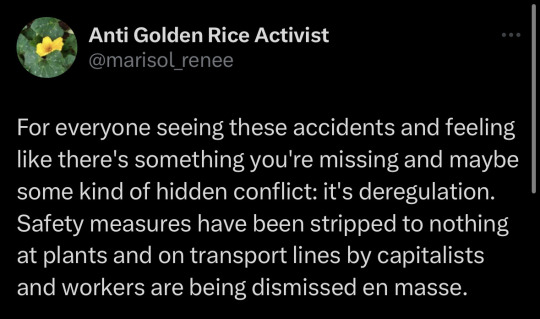
#important#capitalism#end capitalism#current events#government#regulation#the left#progressive#working class
7K notes
·
View notes
Text
I think I've identified the reason I get so worked up about anarchism in relation to labor rights and safety in particular.
Three years ago I watched my coworker almost die when a piece of machinery we were moving unsafely fell on him. It missed his head by an inch and snapped his leg in half instead. It took months of recovery and multiple surgeries for him to walk again and he will be disabled for the rest of his life. And it didn't happen because of Capitalism or profit motive or because our evil bosses were forcing us to work unsafely. It happened because he'd done similar things a hundred times before and it had always been fine, and because I didn't know enough to clock just how dangerous what we were doing was, and just because of some plain shitty luck. Mentally it fucked me up for months in ways I didn't recognize until well after the fact.
And the thing is, almost every construction worker can tell you about the time they saw a fatal or near-fatal accident. An apprentice younger than me had a heart attack and was out of work for over a year after shocking himself on a live circuit. The woman who runs our apprenticeship program has a husband who had his arm blown off in an arc flash incident. One of my teachers had a coworker die after getting hung up on a live circuit and he wasn't found until the end of the day.
Construction is one of the single most dangerous industries to work in, and I believe this is why rates of drug and alcohol abuse and suicide are sky-high in the industry. I think many construction workers are low-key traumatized by knowing constantly that they could die or be permanently disabled due to a very simple mistake or oversight. It is simply inherently unsafe when you are working with live electricity, power tools, heights, thousands of pounds of machinery, cranes, etc. And so yes, I do believe that safety protocols and the ability to enforce them are absolutely necessary to preventing a massive amount of death. The number of worker deaths in the US has been slashed by 60% since OSHA was instated.
And so to get online and have someone who has never set foot on a jobsite in their life condescendingly explain to me that actually, we don't need OSHA or the ability to enforce safety standards because in a perfect world everyone will just suddenly start working perfectly safely, and I'm just too stupid or brainwashed to realize that The Real Villain Is Capitalism, and if we just get rid of that it will somehow also get rid of the inherent safety issues involved in the entire construction industry - well it turns out it pisses me off a little bit!
#frankly it's not even the advocating for removing government regulations that really gets me#i can understand where that's coming from even if i disagree#it's the 'pretending that it won't result in a massive amount of preventable death bc admitting that would make your ideology look bad'#fucking acknowledge the consequences of what you're advocating for instead of inventing some alternate reality#where bad things just suddenly stop happening once your ideology takes effect#i mean god at least libertarians will admit that they're prioritizing personal freedom over other people's lives#like. i think that's bad but at least they're fucking honest about it#construction
210 notes
·
View notes
Text
I just realized that the hermit permits have centralized the hermitcraft economy and as such, established socialism
#vio.txt#hermitcraft 10#stores with supplies regulated by a centralized power?#the elimination of competition through government means?#theyve done it babeyyyyy
129 notes
·
View notes
Note
Hello, I've been paying attention to Dustborn and the only actual question I would like to make is if you see anything worth dissecting on the fact that it got tax money from the EU? Games funded by a government are very rare, so I wonder if analyzing the game from that perspective provides something interesting into game development.
Getting tax breaks and incentives from various governments is actually very common. Government investment is often a lot like scholarships to university - they have bundles of money set aside for applicants that meet certain criteria. Most governments are interested in encouraging economic activity within their borders, especially tech industry growth. Tech pays pretty well, isn't large on space, and encourages secondary growth - tech workers that move to the area will buy usually houses and spend with local businesses, leading to a positive cycle of improved economic growth for the area.

As an example of this, in 2020 the Department of Community & Economic Development of Pennsylvania offered a [tax credit] of 25% of qualified expenses for the first four years of development and 10% for each subsequent year back in 2020 to game developers who spent at least 60% of their total production costs in Pennsylvania. The politicians were hoping to encourage game developers to move to Pennsylvania and they were offering tax credits as incentive.
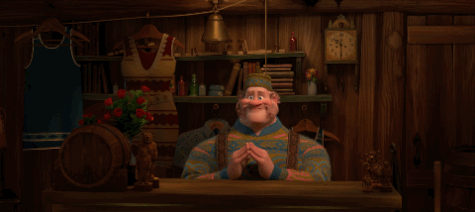
Similarly, the Norwegian Film Institute offers funding to [audiovisual productions that meet their criteria]:
The screenplay, or the literary work on which the screenplay is based, has originally been written in the Norwegian or Sami language
The main theme is connected to Norwegian history, culture or social conditions
The action takes place in Norway, in another EEA country (countries of the European Union [EU] plus Iceland, Liechtenstein)
The work contains significant contributions from rights holders or artists resident in Norway or in another EEA country.
Dustborn ticked enough of these boxes that the NFI agreed to fund them. It wasn't a special thing, it was government money set aside to encourage the development of Norwegian-focused cultural audio visual works. That includes video games, movies, television, or any other kind of audio visual production. Lots of smaller works, games included, find funding through programs and grants like this.
[Join us on Discord] and/or [Support us on Patreon]
Got a burning question you want answered?
Short questions: Ask a Game Dev on Twitter
Long questions: Ask a Game Dev on Tumblr
Frequent Questions: The FAQ
27 notes
·
View notes
Text
I imagine the underlying principle of being upset by the proposed TikTok ban is that hatred of government regulation trumps all other hatreds, which makes sense, but it's weird to see how many people apparently love TikTok now, after I thought we all agreed it was in fact the worst thing in the world and that it poisoned the internet and our species incurably
#I myself feel torn#on the one hand i hate tiktok with a delirious passion#can't say enough bad things about it#the rage is absolutely feral and violent#but also#government regulation. . .#of the internet#...#do not want#faced with the terrible prospect of suspending my hatred of power because the power is being used to do something I ostensibly desire
55 notes
·
View notes
Text
actually it's funny because you can fall into the trap of assuming you know basically everything worth knowing about america and how americans live, on account of having watched/read/listened to american cultural exports and having been on the american internet for basically your entire life. but then your american best friend will make an offhand comment about having to buy their own rubbish bins and select and pay for a privately owned garbage collection company to come empty them, and this will baffle you completely.
#like what are you guys even paying taxes for if the local council isn't gonna take care of HOUSEHOLD RUBBISH COLLECTION 😭#i'm assuming this is something that varies regionally and some areas probably have well-run government organised garbage collection service#and in other places presumably it is a de-regulated shitshow
14 notes
·
View notes
Text
Will never forgive the MCU for making Peter and Tony joined at the hip because of what amounts to less than a year's worth of Bendis storylines that shoved them into a weird dynamic that never made a ton of sense and also has practically never been referenced in the comics since.
#like i see stories about Tony and Peter even in fandoms that have nothing to do with the MCU because crossovers#nowhere is safe from the TONY IS PETER'S FAMILY stuff and I just want to shriek like a pterodactyl#no he's not except for like that time in the movie about government regulation of superheroes and adherence to the law#where Tony on the side of law and order blackmailed a fifteen year old Peter into illegally going to another country and throwing#him into a superhero fight without his actual guardian's knowledge#ahflkfnhklahfla I HATE IT SO MUCH like the cognitive dissonance of that will never not make me be like...this? THIS IS YOUR KING?#this is what youre basing all of this nobody is better for Peter than Tony stuff????#again I must say with all the emphasis#ADHLHDAKLHFLAHKLFHALKFAF
27 notes
·
View notes
Text

The market will regulate itself
#The market will regulate itself#marketing#market#regulate#eat the rich#eat the fucking rich#ausgov#politas#auspol#tasgov#taspol#australia#fuck neoliberals#neoliberal capitalism#anthony albanese#albanese government#pollution#pollutants#polluted water#polluters#polluted air#contamination#cross contamination#contaminated! au#contaminated food#class war#anti capitalism#late stage capitalism#fuck capitalism#washington capitals
23 notes
·
View notes
Text
Really extra tired of black and white thinking around COVID like can you guys activate your brain and understand that lockdown was NECESSARY to prevent massive economic and social breakdown that would have been induced by our entire population getting infected at once before we figured out how to treat it
Not to mention the whole "young people didn't need to worry about dying they shouldn't have been locked down what about their social lives!!11!!!"
Hi. Hello. I am a youth that was disabled by COVID how are you doing today. Oh, you're not disabled by COVID? Cool shut the fuck up forever.
#not this book talking about seven papers between 2003 and 2014 being a 'wealth of information' and 'entire catalogue of research'#you aren't a scientist are you sweetie#less than a paper a year on a subject and you're claiming we should have been setting aside everything to treat sars cov 2 patients based on#that alone????#sweetie#BUT OUR FREEDOMS!!!#but sweetie the medical complex#BUT THEIR SOCIAL LIVES!!#but dear my ability to walk and regulate my heart beat at the same time#I'm bitter I'm so so bitter#these were hard choices made by pros and cons and risk management#was staying home for a while really worse than the entire medical industry imploding even worse than it already did#and yes by complaining about the government MAKING you stay home you are in fact proving that you wouldn't have otherwise#ffs
31 notes
·
View notes
Text
Time to dismantle some corrupt facilities!

#concept art#dall e ai#dall e#oc#oc Walt Eli#badass empath#not that kind of empath#empath variegate#variegates are essentially mutants#empathecy is a brain variegation#This guy runs both legal and illegal businesses#this guy is old and theoretically immortal but he doesn't know for sure because he cannot know if he can die of old age unless he does#This guy is highly educated#This guy has enemies everywhere from the government to the criminal underground#This guy can learn anything he wants to and has perfect memory#This guy is a mary-sue that is balanced by external challenges#There's lots more details to this guy than I'm sharing on this post#normal people are called regulates#freedom fighter
7 notes
·
View notes
Text

#human rights#women’s rights#universal healthcare#pro choice#feminist#keep religion out of government#keep abortion legal#keep abortion safe#late stage capitalism#gun safety#gun regulation#gun reform#love is love#i read banned books#willful ignorance#ignorance is not a virtue#tax the rich#feed the poor
11 notes
·
View notes
Text
#immigrants#immigration#germany#security package#german government#asylum seekers#asylum and security regulations
6 notes
·
View notes
Text
Mmmmm okay but honest question tho
The KOSA regulations would need to be implemented even if the companies offer their services only outside of the country? 🤔 And if they are established on another country and offer its services to usa, they need to implement the regulations right?
Because like, I was thinking of how mihoyo moved from china to avoid the censorship regulations globally, for example
And like, couldnt then social media companies preassure the goverment about doing that too, then
Like, even if they had to censor stuff for usa, they would be losing a lot of potential interactions because of the content theyre hiding, so if they had to censor everything in case of being established in usa (even if it is content being shown outside of the country), wouldnt it be better for them to just move the company to another country then. To continue having those extra interactions from "censored posts" shown to other countries.
Or even, if the cost of filtering the posts was too high, its possible some companies would choose to not offer their services to usa anymore. Idk how taxes to big companies work in those cases, but that would be a loss for them in the long term too right.
Like, isnt the whole bill a bad idea even commercially?
And couldnt it happen that companies publish a statement about getting out of the country in case the regulations were stablished?
#kids online safety act#kosa bill#stop kosa#politics#capitalism#I mean. spotify did a statement here about the changes in copyright laws#threatening to not offer their services anymore because they didnt want to pay extra#for example#so like. couldnt social media companies also do that in usa. about internet regulations#its a honest question#or are they scared of losing their conservative users. as they may talk shit about the company because of refusing the regulations?#or could it be fear of retaliation from the government/cia/stuff??? wouldnt it just be better for them all to move out of the country then#I just think its lowkey weird how the companies that would be affected by this regulations have been staying silent#are they just confident the bill wont pass then#lmao#long post
24 notes
·
View notes
Text
not to trivialize a legitimate problem, but republicans really act like fentanyl is out there hunting them down and you can catch it by going to the grocery store and not what it really is, a problem for a select group of people who are engaging in behaviors that risk them coming in contact with it.
#bark bark bark#saw someone say that 'the government put more effort to prevent you from buying ivramectin than fentanyl'#yeah that's because you can buy it at fucking tractor supply thus CAN be regulated in that way
8 notes
·
View notes